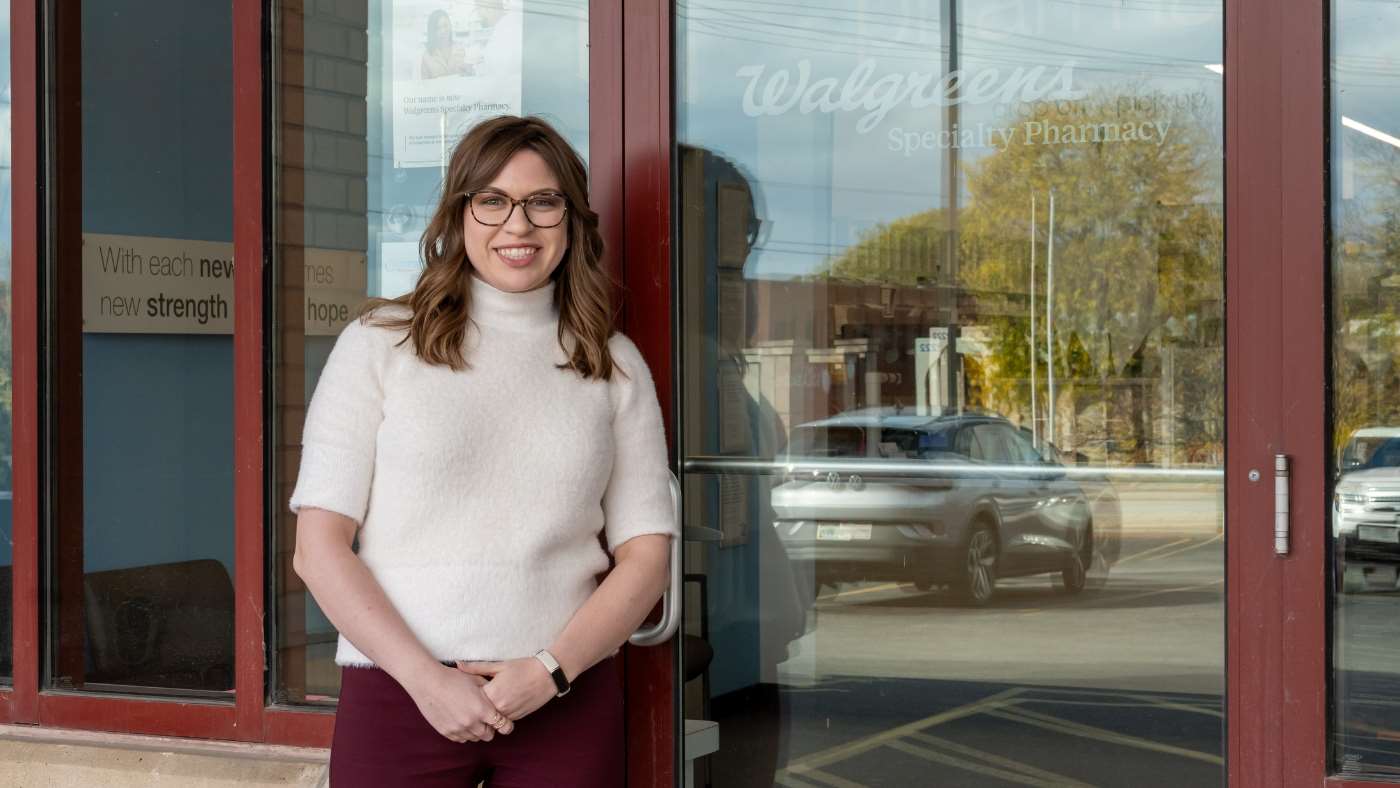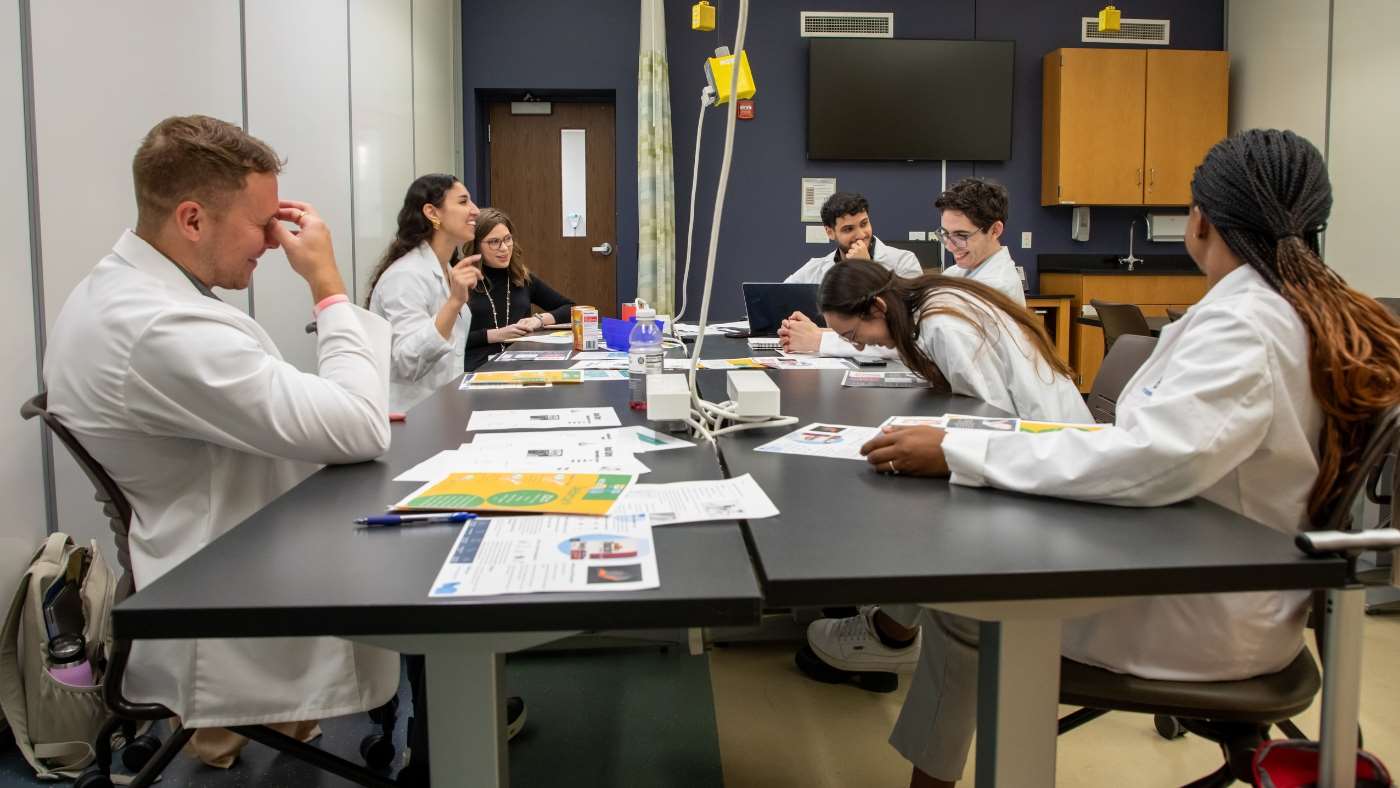MCW Partners with Walgreens to Offer Specialty Pharmacy Residency

Specialty pharmacy is focused on treating complex disease states including but not limited to oncology, neurology, virology, pulmonology and fertility. Specialty pharmacists manage high-cost medications, provide extensive patient education, monitor for adverse effects and encourage proper adherence to treatment regimens.
In June 2024, the MCW School of Pharmacy launched a new postgraduate year one (PGY1) residency program in partnership with Walgreens to train Doctor of Pharmacy graduates to become specialty pharmacists. The program is located in Wauwatosa, WI at one of four Walgreens Specialty Pharmacy sites in the state.
“Our program provides pharmacy residents the opportunity to work with complex disease states including oncology, neurology, HIV, inflammatory conditions and fertility,” explained Sarah Schmidt, PharmD, general manager / clinical pharmacist at Walgreens Specialty Pharmacy. “The partnership with MCW provides residents a unique opportunity to gain teaching experience and support with a research project. Graduates from the Walgreens/MCW program will have the abilities and experience necessary to secure positions with direct, clinically focused patient care, ambulatory care practice settings, management opportunities and academia.”
Current resident Emma Hilgendorf, PharmD, an MCW alumna, highlighted that this program offers extensive opportunities to deepen expertise in various disease states while gaining valuable experience in specialty pharmacy. Dr. Hilgendorf previously spent five years working at a Walgreens community pharmacy, where she valued the opportunity to build meaningful relationships with patients. This experience solidified her passion for pursuing a career in community pharmacy. As an MCW pharmacy student, she learned during an Advanced Pharmacy Practice Experience (APPE) that the type of patient interaction at a specialty pharmacy is different.
“We don’t often see patients face-to-face, but instead build relationships over the phone,” said Dr. Hilgendorf. “Patients are usually talking with you from the comfort of their home, where there’s no one else around to hear what they have to say – so they tend to be a lot more open. We can address their concerns and take time to really care for them, versus interacting with them quickly at the community pharmacy counter.”
Another unique difference at Walgreens Specialty Pharmacy is the proactive approach taken by specialty pharmacists and technicians, who call patients each month to schedule a delivery of their medication. At this time, they will also assess the patient's adherence to their medication, new or concerning side effects and changes to their allergies, medications or health conditions.
Every six months, specialty pharmacists perform a reassessment with patients to ensure they are meeting their goals of therapy, assessing their quality of life, determining effectiveness of their treatment as well as completing a medication reconciliation.

Dr. Hilgendorf is an alumna of the MCW School of Pharmacy Class of 2024. One day per week, she is back at her alma mater to facilitate patient care lab activities and prepare didactic lectures. She also has dedicated time to work on research projects. At the conclusion of the residency, she will earn both a teaching certificate and research certificate from MCW.
The residency program also offers professional development opportunities. Walgreens sponsors her travel to the American Society of Health-System Pharmacists Midyear Clinical Meeting and Exhibition and the American Pharmacists Association Annual Meeting and Exposition, where she will present her research during a resident poster showcase.
Dr. Hilgendorf is passionate about advancing her career in specialty pharmacy and values the exposure she gained to this field during her time as a student. She said she valued the MCW School of Pharmacy’s unique clinical rotation structure: for the first two years, students develop hands-on skills during weekly rotations on Fridays, then during the third and final year of the PharmD program, they are immersed in the practice setting full time.
“With the weekly clinical rotations, you’re able to consistently apply what you’re learning in the classroom,” said Dr. Hilgendorf. “Ten consecutive Fridays are spent at the same practice site, allowing for a more in-depth and consistent learning experience. This approach contrasts with other programs where students complete a five-day rotation at one location before moving on to the next.”
She also valued MCW’s accelerated program structure, with a year-round schedule that kept her engaged. She participated in the dual-degree program, which allowed her to spend three years in undergraduate studies at Wisconsin Lutheran College and three years at MCW’s PharmD program. The accelerated timeline allowed her to begin her PGY1 residency two years sooner than peers on the typical eight-year trajectory to earning a bachelor’s and PharmD.

